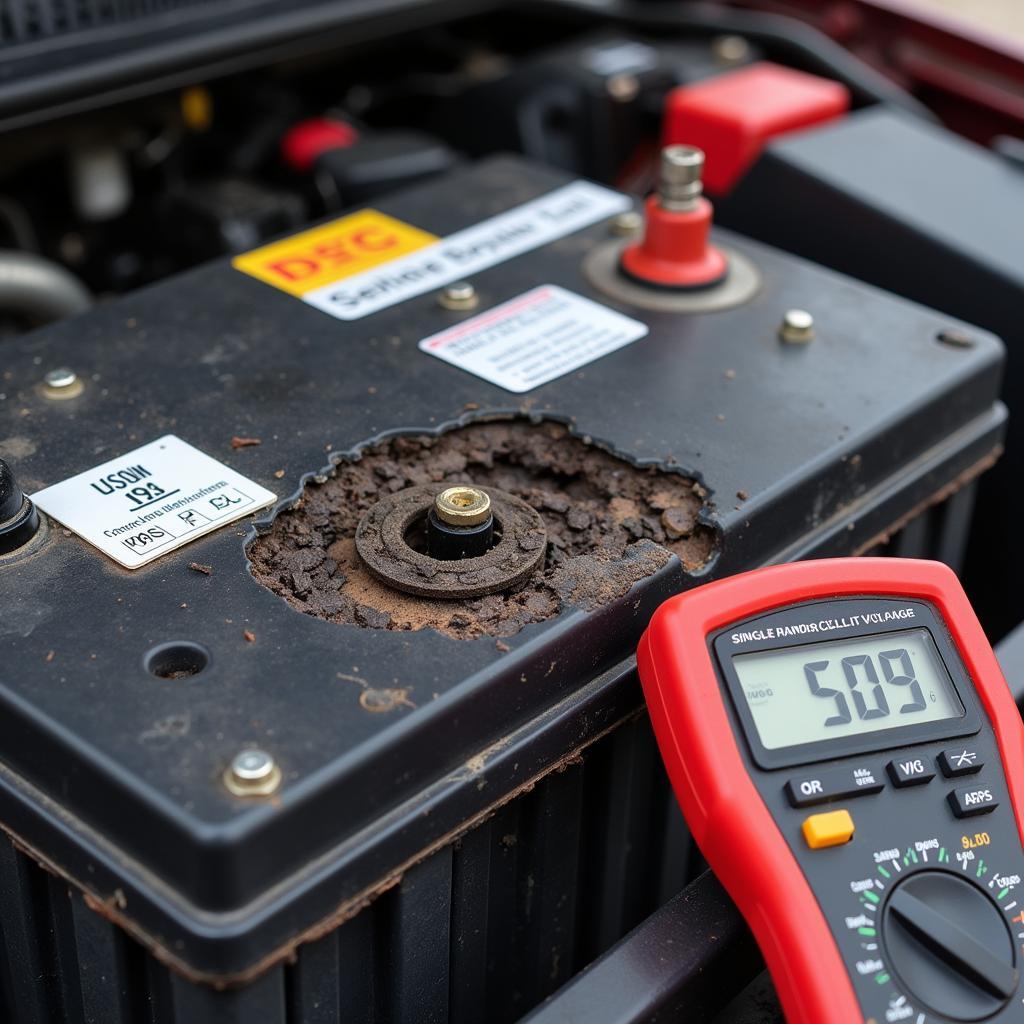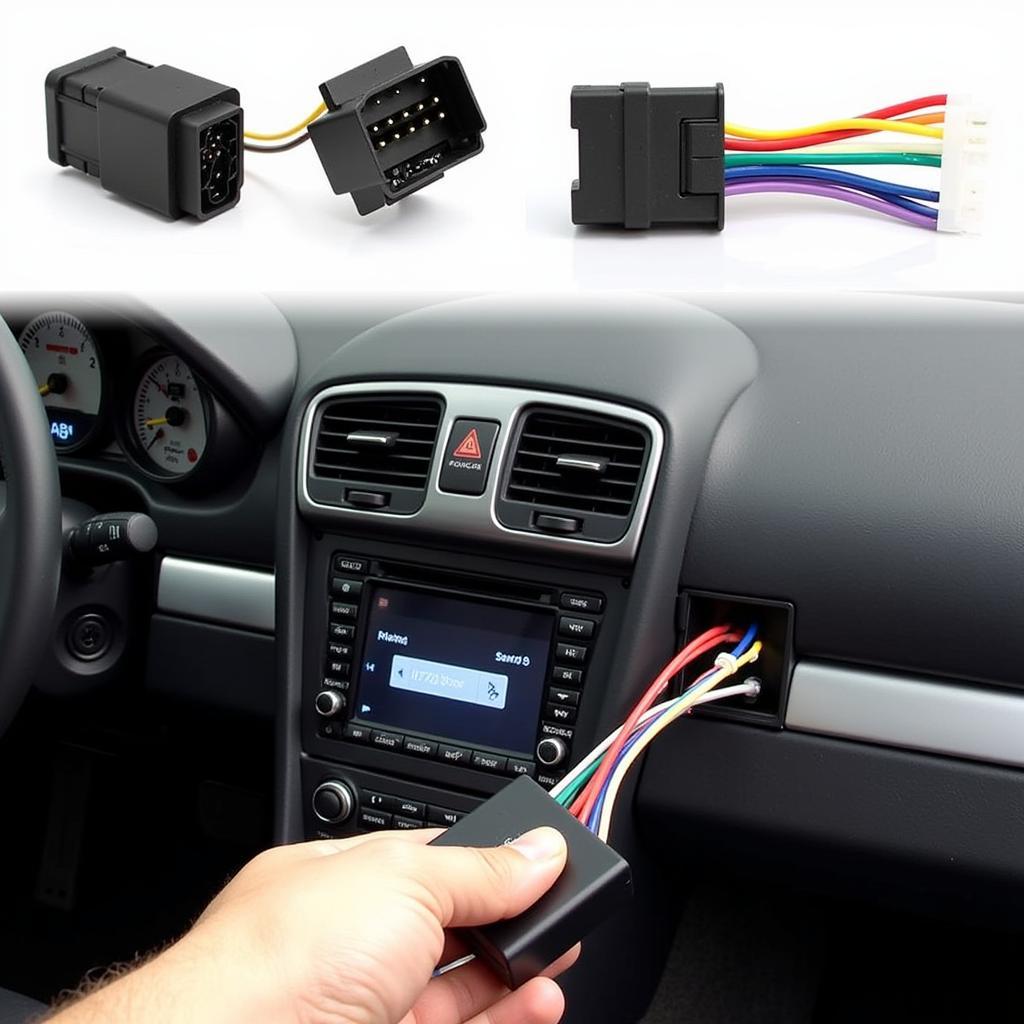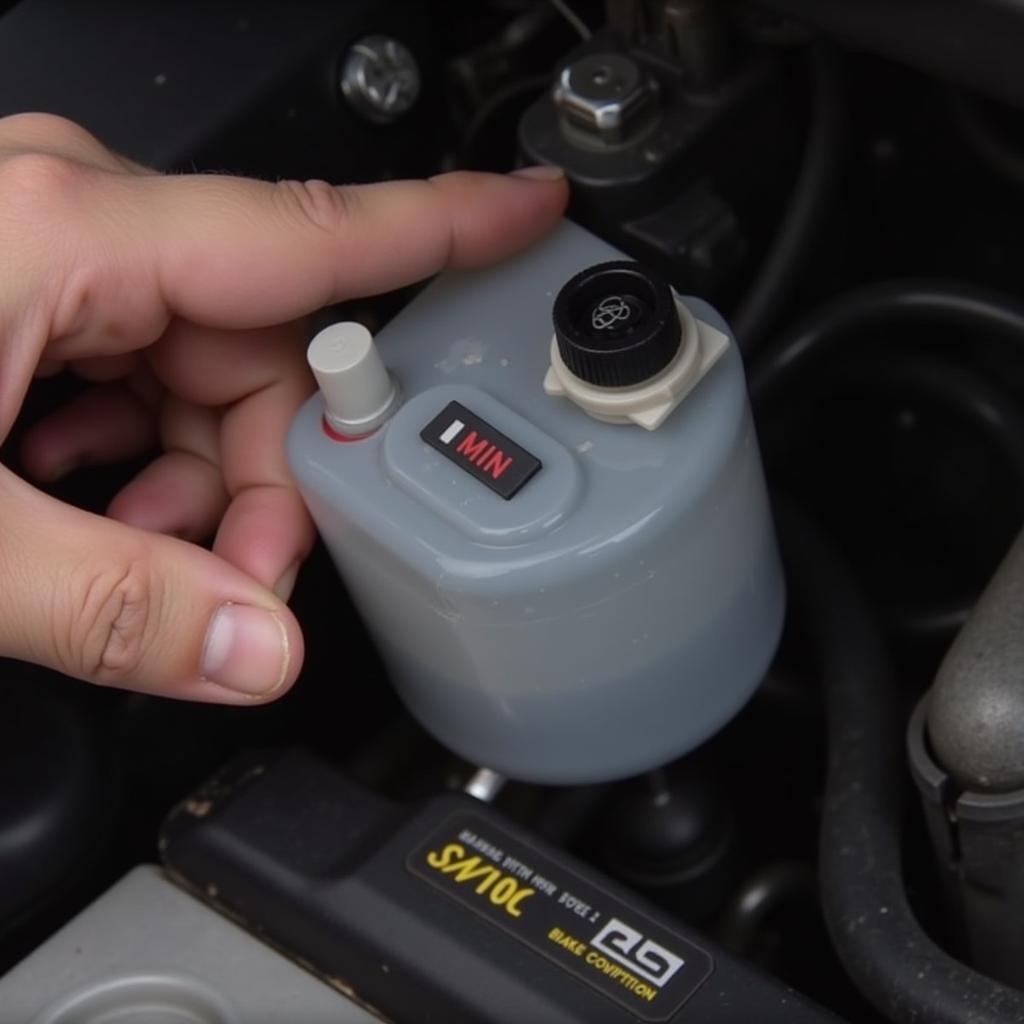A bad cell on a car battery can leave you stranded. Understanding the signs, causes, and solutions can save you time, money, and frustration. This article dives into everything you need to know about dealing with a bad cell in your car battery, from DIY diagnostics to professional solutions.
If your battery keeps dying, a bad cell could be the culprit. A car battery isn’t a single unit of power, but rather a collection of individual cells, each contributing to the overall voltage. When one of these cells fails, the entire battery’s performance is compromised.
Identifying a Bad Cell in Your Car Battery
Several symptoms point towards a bad cell. A common sign is a lower than normal voltage reading. A fully charged 12-volt battery should read around 12.6 volts. A significantly lower reading, particularly if it drops quickly after charging, could indicate a bad cell. Another telltale sign is a swollen or bulging battery case, often accompanied by a sulfuric acid smell. This indicates internal damage and requires immediate attention. Finally, slow engine cranking or clicking sounds when you turn the key can also suggest a bad cell is preventing the battery from delivering enough power to start the engine.
 Bad Car Battery Cell Symptoms
Bad Car Battery Cell Symptoms
What Causes a Bad Cell?
Several factors can contribute to a bad cell. Overcharging, which can occur due to a faulty alternator, is a common culprit. Extreme temperatures, both hot and cold, can also stress the battery and shorten its lifespan. Sulfation, a buildup of lead sulfate crystals on the battery plates, can also lead to a bad cell, especially in batteries that are frequently discharged or left unused for extended periods. Finally, physical damage to the battery, such as cracks or punctures, can also cause a bad cell.
If you suspect your truck’s battery is constantly draining, a bad cell might be the reason. Check out this helpful article: my truck battery keeps dying.
Testing for a Bad Cell
You can test for a bad cell using a multimeter or a hydrometer. A multimeter measures the overall voltage of the battery, while a hydrometer measures the specific gravity of the electrolyte in each cell. A lower voltage reading or a significantly different specific gravity in one cell compared to the others indicates a problem.
Can You Fix a Bad Cell on a Car Battery?
Unfortunately, a bad cell in a car battery usually means you need a new battery. Individual cells are not typically repairable. While some DIY methods claim to revive dead cells, these are often temporary fixes and don’t address the underlying issue. Attempting to repair a bad cell can also be dangerous due to the corrosive chemicals inside the battery.
If you’re experiencing repeated battery drain issues, especially with a Prius, this article might be helpful: prius battery drain.
Preventing Bad Cells in Your Car Battery
While you can’t always prevent a bad cell, you can take steps to prolong your battery’s life. Regularly cleaning the battery terminals and ensuring they are securely connected can prevent corrosion. Having your charging system checked periodically, including the alternator, can help prevent overcharging. Storing your car in a moderate climate, if possible, can also help reduce stress on the battery. Finally, if you anticipate leaving your car unused for an extended period, consider using a trickle charger to maintain the battery’s charge and prevent sulfation.
Have you charged your car battery, but it still dies again? This article offers valuable insights: charged car battery but dies again.
Seeking Professional Help
If you’re unsure about diagnosing or dealing with a bad cell, it’s always best to consult a qualified mechanic. They have the tools and expertise to accurately diagnose the problem and safely replace the battery if necessary.
“A bad cell weakens the entire battery,” says John Smith, Lead Automotive Technician at Smith’s Auto Repair. “Ignoring it can lead to further problems, so prompt diagnosis and replacement are crucial.” Echoing this sentiment, Jane Doe, Electrical Systems Specialist at Doe’s Auto Electric, adds, “Preventing a bad cell is always better than dealing with the consequences. Regular maintenance and careful monitoring of your charging system can save you from unexpected breakdowns.”
In conclusion, a bad cell on a car battery is a serious issue that needs prompt attention. By understanding the signs, causes, and preventive measures, you can keep your car running smoothly and avoid being left stranded. Don’t delay in addressing this problem; get your battery checked if you suspect a bad cell.
If you own a Prius and your battery keeps dying, you might find this resource helpful: my prius battery keeps dying. For C5 Corvette owners experiencing battery drain issues, this article might provide some answers: c5 corvette battery drain.



